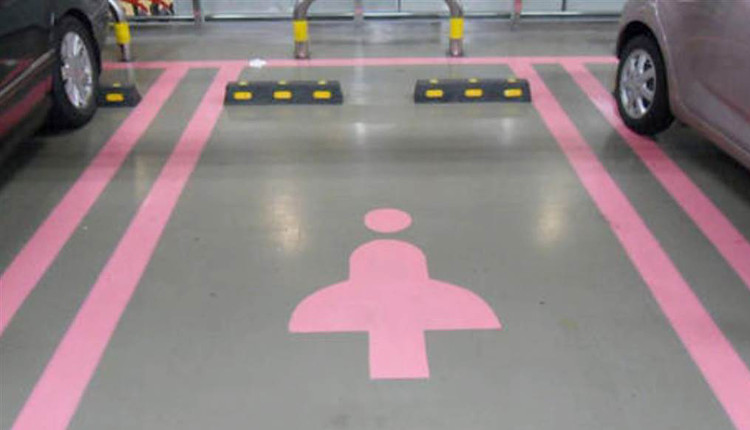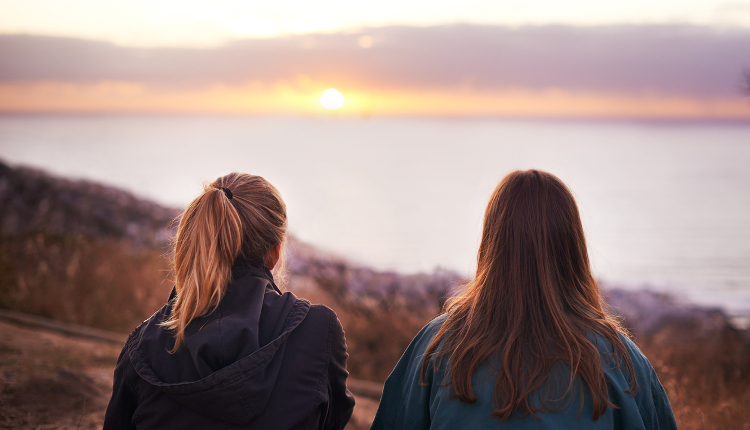No Men Allowed | The Politics and Practice of Women’s Only Spaces
From a women only screening of Wonder Woman to a women only music festival, public events that cater to an exclusively woman identified audience have gotten much attention of late. News of these events is usually accompanied by indignant cries of social exclusion, reverse discrimination and misandry from the angry hoards in cyberspace and sometimes actual threats to the people or institutions that dare to create safe spaces for women.
On the other hand, there is barely a flutter of eyelids outside of feminist circles when an Irish national newspaper broadcasts a podcast about men and feminism with an all male panel, or when the US committee for health reform includes not a single woman.
So why is women getting together to organise and socialise without the presence of men still, in 2017, threatening to the ‘natural’ order of things?
From women only roller derby groups, women’s activist circles, support groups for solo women travelers, Girl Crew, to red tent gatherings and online forums, women only spaces are experiencing a recent boom. Not unlike the feminist self-help groups and activist circles of the 1960s and 1900s these spaces have been emerging around common interests such as feminism, sexual violence, reproductive health and rights, recovering bodily autonomy, menstruation activism, sports or other hobbies.
They can be learning spaces, activist spaces, support group style or simply a forum where the participants can put any issue close to their heart up for discussion. The one thing that unites them is that cisgendered men are not allowed. Some are open to women identified people only but others embrace non-binary, queer and trans folk as well.

I have been participating in a growing number of women only spaces over the last few years from full moon circles to feminist theatre groups. In these small and often self-organised groups I have found communities of women who are open to sharing with, and listening to, others about our diverse experiences as women, issues that are important to us, oppressions that we have experienced, knowledge exchange and information and taking action to end oppression (not necessarily only gender issues).
You can find a safe, non-judgemental space to share where no one will explain (or mansplain) to you about how you are overreacting, or blame you, or tell you to get over it, or how your experience of sexual violence pales when compared to the violence inflicted on us by global capitalism. To which I always respond, yes, but does capitalism get in bed with you and violate your bodily autonomy?
A few weeks ago an awesome feminist writer created an intersectional women only Facebook group (which shall remain nameless) so that anyone identifying as a woman can have a safe space to interact online, share stories and experiences and ask for advice. Within two weeks it’s membership has leaped to over 700 women. I asked them why they feel they needed a space like this and what they felt it gave them. Their responses included:
“There is a different dynamic in groups of women, where, in the right group, you can feel comfortable to be as expressive as you want…”
“Learning from each other, and circling with women from different walks of life and different ages is everything.”
“I love that I don’t need to explain, rationalise, defend, educate, nurse my position or censor my words. Instead I feel encouraged, supported and heard by people with a similar mindset to mine.”
And finally: “Almost zero percent trolling. Basically.”
Women only spaces are by no means perfect. Just as women have been sidelined in mixed spaces the voices and experiences of women of colour, women from the LGBTQI+ community, women with different abilities or traveller women, have often been sidelined in mainstream feminist circles that are often dominated by white, cisgendered, able bodied women. Creating women only spaces does not necessarily mean they are free of racism, classism, homophobia, transphobia, cis-sexism or ableism. Putting intersectionality into practice for many feminists is still a huge issue. It is important for anyone concerned with genuine emancipation for women to examine whose voices are represented and who may be excluded in any group.
One solution for this is the creation is safe spaces for women of colour , where they can talk about the intersections of race and misogyny, without worrying about white feminist fragility. Or where traveller women have a safe space to discuss the specific institutional, social, political and cultural discrimination they face in Ireland from many settled men and women. Rather than feeling threatened by these spaces, emancipatory feminism should recognise the legacy of marginalisation of women of different specificities, and know that not all oppression is shared. We can respect the need for these spaces and take our lead from those women as to how best we can act in solidarity alongside each other.
But what about the menz?
Many people have argued that excluding men from conversations about feminism does more damage to the cause than good. To this I would respond that women created feminism and have been driving feminist activism for over 200 years. They have led the discourse, pushed the boundaries, challenged oppression and changed paradigms. Most importantly it is women who have overwhelmingly borne the brunt of the risks associated with feminist activism.
We have always had some support from male allies and it is welcome of course, as long it is in the spirit of genuine solidarity and these allies do not fall into the trap of seeking to be protagonists within feminism. They do not need to be invited to support feminism, however, just like I don’t need to be invited to become an environmental activist or challenge racism, I can simply begin taking action. Male allies can use their voice and privilege to make male dominated spaces more feminist, more welcoming to women.
Some spaces are women only by default. For instance I am just finishing an 18 month diploma in ‘Bodies, Sexuality and Eroticism’ which is open to people of all genders. The only man, however, who expressed any interest in attending was there for the possibilities of learning about tantric sex and hooking up with fellow participants. When he discovered that we would be spending our time discussing feminist theory, he politely excused himself. It would be amazing for men to have an interest in really getting down and dirty with feminism and sexuality studies, they could learn a lot about themselves, sexual politics and patriarchy. Unfortunately this is rarely the case.
When it comes to spaces that revolve around maternity and childcare, this is also often the case. Women, until very recently, were considered the default child carers, the ones to choose between career and family, the ones to take the kids to the doctor, the ones who joined the mother and baby groups. Here is one area where it might be nice to see more male involvement since parenting is increasingly recognised as a shared responsibility.

And well, let’s face it, the menz have any number of spaces they can get together and discuss their issues, Wednesday night drinks with the ‘lads’, the Friday night ‘kickabout’, sports clubs, political parties, 78% of the Dáil, the Freemasons and the Roman Catholic Church, to name but a few. And if they really feel left out by all this feminist organising and subversion then there is nothing stopping them from forming their own circles in which they can deconstruct their masculinity, examine their male privilege and figure out how to be better allies to women.
One of patriarchy’s most persistent and harmful legacies has been the maintenance of women in isolated spaces, disconnection from a larger community of women outside of childcare and the inculcating of the need to compete endlessly with other women. Louise O’Neill’s debut novel Only Ever Yours is a frightening reflection on how girls are taught from a young age to bring each other down and to practice anything but solidarity.
It transported me back to my years in secondary school, the drama, the bullying, the sniping, the backstabbing and the overwhelming, suffocating need to conform, to fit in, to be a ‘nice’ girl and the consequences for those of us who failed to live up to those expectations. It has taken me years to dismantle the need to compete with other women and the fear of being surrounded only by women.
Solidarity
Women’s only spaces are a way of building solidarity and empathy between women to overcome that legacy and to find genuine support and friendship in facing the effects of the patriarchy which have seemed into almost every aspect of our personal and public lives. It is not easy nor is it utopic, there are tensions, misunderstandings and even betrayals. The only way through those situations is dialogue, empathy and understanding.
Those of us who have participated in women only spaces often face negative consequences in our personal and public lives. From arguments with partners when they know we are going off to meet with our fellow witches and co-conspirators. Who knows what diabolic actions we could be planning behind closed doors, from mass male castration to ‘uterus on strike’ actions. Apparently these communities are threatening even to our relationships. Online we are regularly branded feminazis (though as far as I am aware no feminist has ever led imperial conquests or carried out genocide).
Nevertheless, we persist. Until mixed spaces genuinely take into consideration the concerns of women, the specificities of gender based oppression, and challenge the reproduction of violence within those spaces, then there will always be a need for women only spaces.
